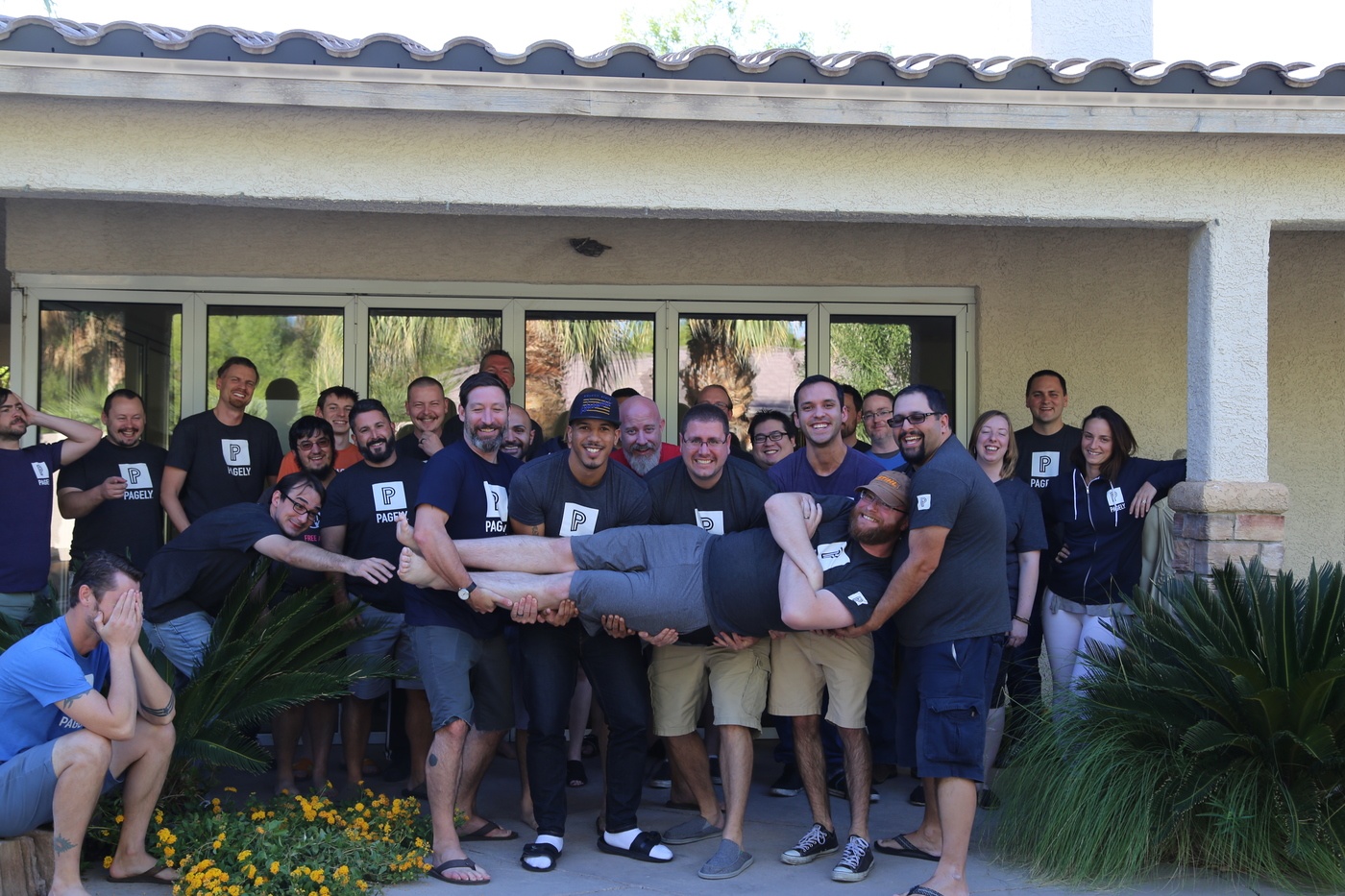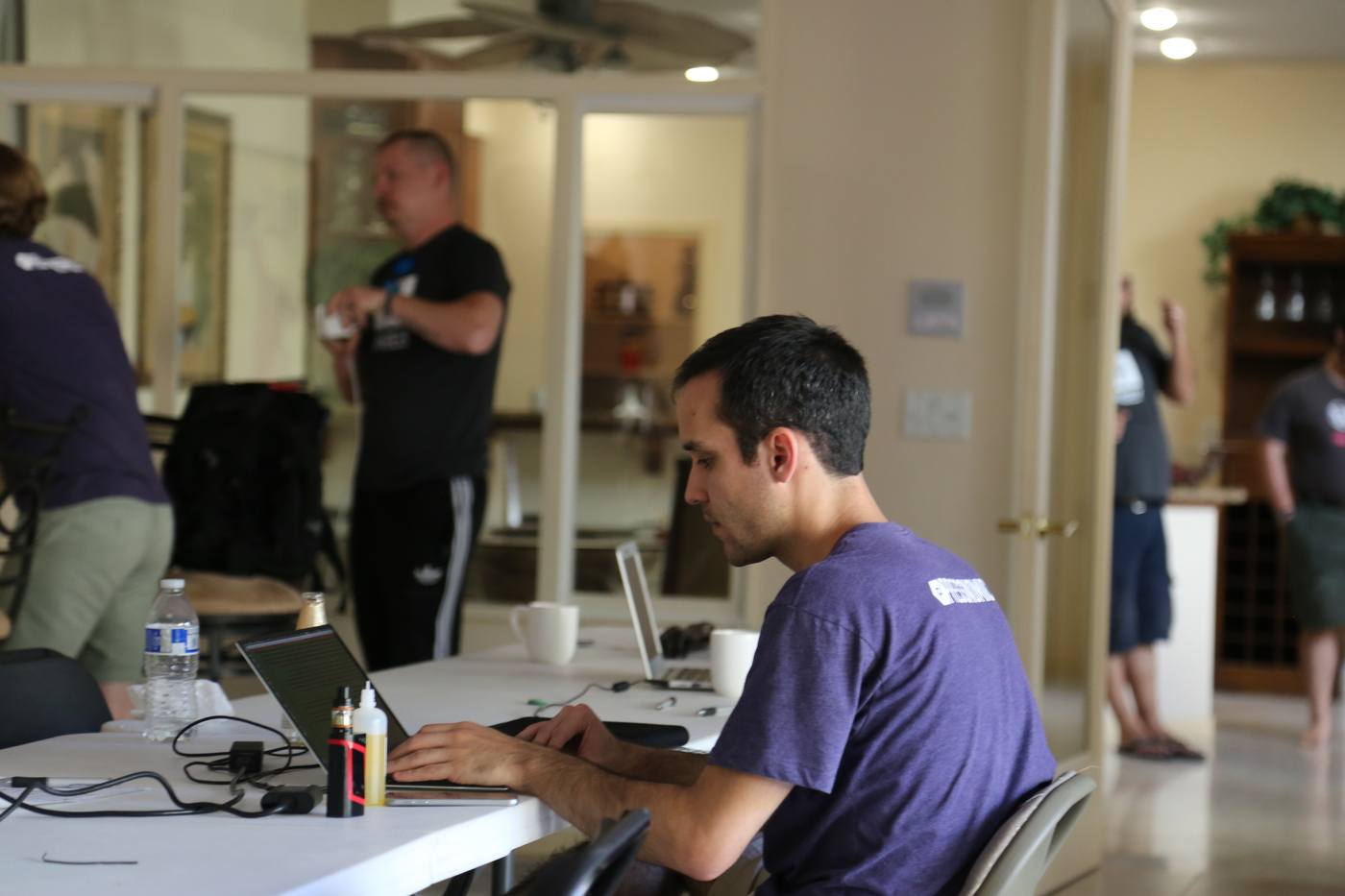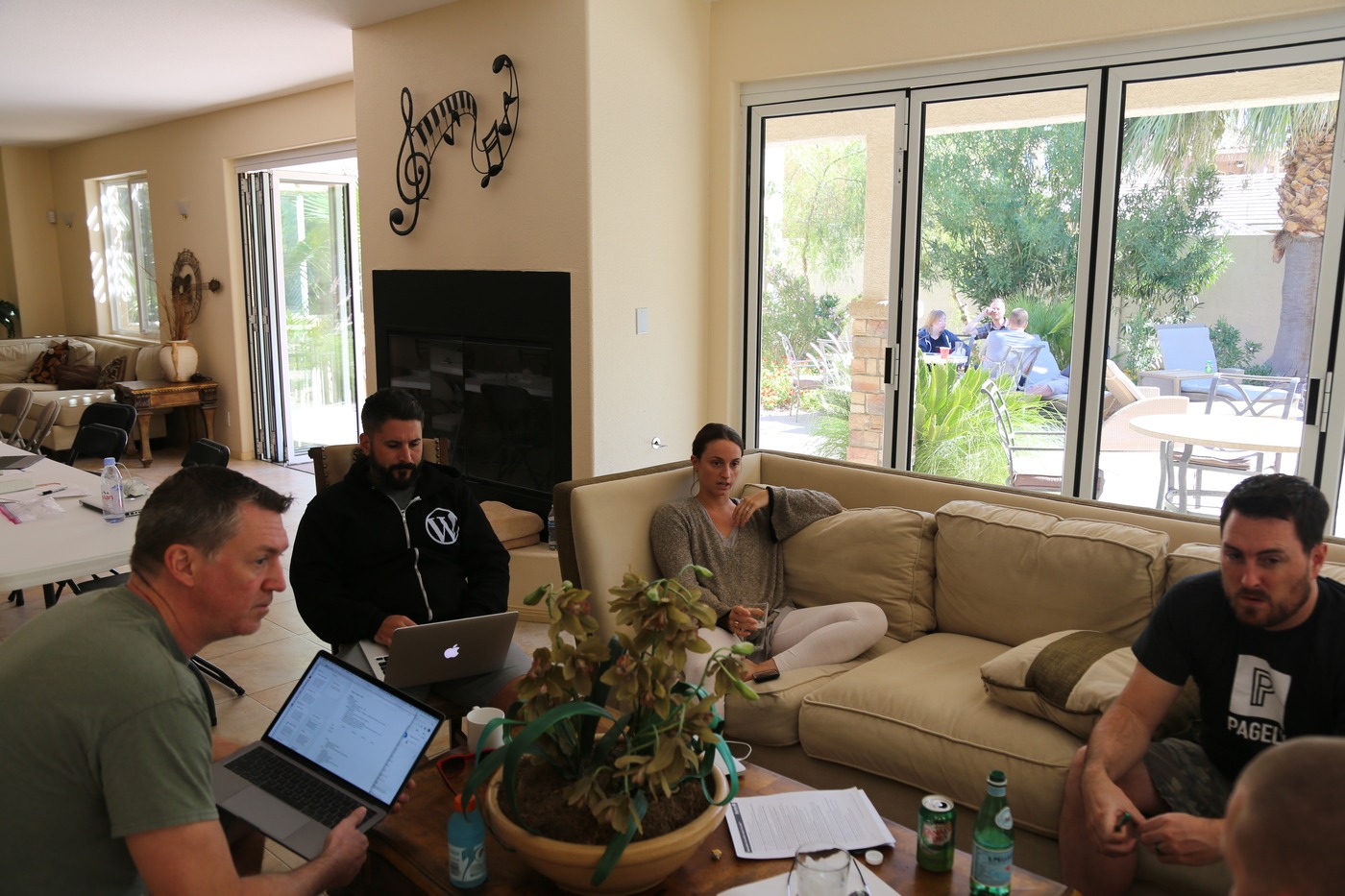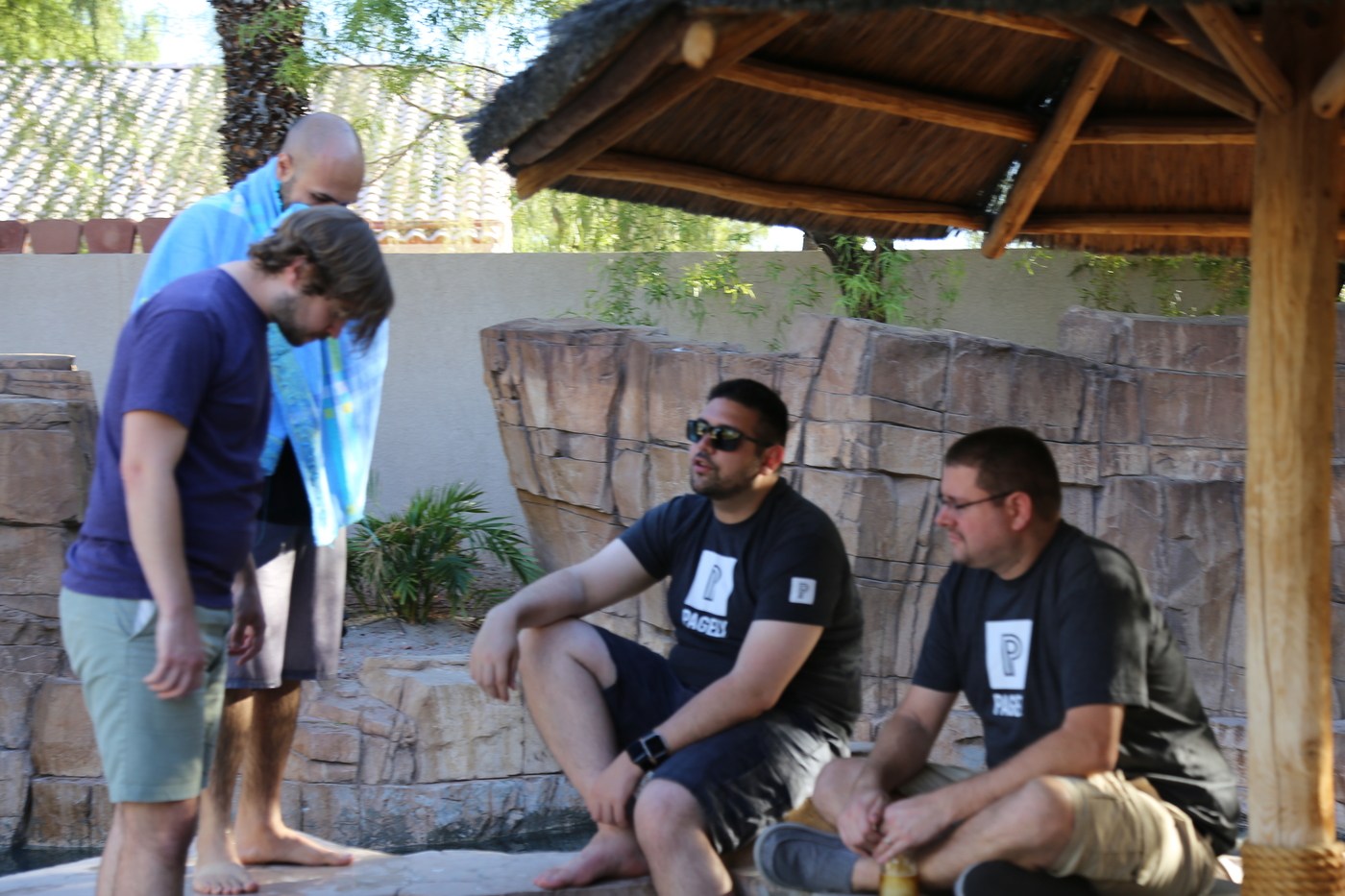Crafting a strategy for the year ahead is an important part of the job for any business leader. Come January, teams disappear into meetings, later emerging with a handful of goals for the upcoming year.
The result can often be an uncreative and uninspiring collection of “this year plus 10%” spreadsheets and unachievable and often difficult to implement pet projects. According to McKinsey, many CEOs complain that their strategic planning process yields few new ideas and is often fraught with internal politics.
The problem? A lack of collaboration. This top-down approach is one of the reasons why so many organizations struggle to hit targets, and it’s one of the reasons Pagely practices a Leader-Leader management style. So few people on the ground are involved or have their say in how the company is moving forward and don’t feel like they “own” the organization’s strategic goals. This often leads to employees taking a “business as usual” approach to their work, and management and team priorities becoming misaligned.
Henry Mintzberg, a professor of management at McGill University, calls the phrase “strategic planning” an oxymoron. He argues that real strategies are rarely made in paneled conference rooms but are more likely to be cooked up informally and often in real-time — think hallway conversations, casual working groups, and quiet moments of reflection on long airplane flights.
So how can companies reform the planning process and bring in more creative, informal thinking?
The answer lies in talking with — and listening to — your team. Set aside some time to meet with your team in an informal setting (that’s not your boardroom) where you can talk openly. Ask your team to think about the 12 months just gone, the 12 months ahead, what worked and what hasn’t worked.
The sets of questions below offer a useful exercise to help your team reflect, learn and plan ahead for 2019.
In the process you’ll discover some key insights, bring your team closer together, and help inform big decisions going into the new year.

What Worked
Start by asking your team to think about what your company accomplished during the past year. While big achievements will be quite obvious — awards, rankings and milestones — hiding in plain sight are often uncelebrated and important accomplishments.
So get everyone to pull out their calendars and look back over meetings, clients, projects and work trips, and think back to what the team achieved over the past 12 months.
- Which customer success stories reflect how our company has grown last year?
- What is the one thing our organization did best last year?
- What has been the organization’s proudest moment?
- What were some of our company’s unexpected wins?
- What industry awards did our company win?
- What are industry insiders saying about our company?
- What did we make happen this year that was outside of the company’s goals?
There’s a lot of un-leveraged wisdom you can mine from the past 12 months by asking and reflecting on these simple questions. What’s more, acknowledging what has worked can help your team build on its strengths and take any hard-fought wins into next year.

Lessons Learned
Teams often get frustrated because obstacles get in the way of doing a great job. As a business leader, it’s up to you to identify and remove these obstacles and make sure your team is performing at its best.
So ask your team these questions to uncover any barriers to progress:
- What didn’t go so well last year?
- Were there any cringe-worthy moments?
- What is the one thing your organization was worst at last year?
- What did we learn from our mistakes?
- What lessons can our company leverage?
- What could our organization do differently over the next 12 months?
- What break-through moments did we experience last year?
- What is holding our company back?
- What can each of us do to be more helpful to the team?
Ask your team to be honest and critical without judgment. Only by sharing failures can you learn from your mistakes and identify hard-won lessons you’d be wise not to repeat.
In the new year, it’s easier to look back and have a deeper understanding of your mistakes. In retrospect, time can help us better learn from what went wrong. We can better spot lessons and growth opportunities without letting ego get in the way.

Looking Forward
Next, ask your team to imagine what the company will experience over the next 12 months in an ideal world:
- How will our organization change over the next 12 months?
- What challenges will our company face?
- What will customers be saying about our company to their friends a year from now?
- What awards or recognition will our company earn at industry events this year?
- What headlines will our company generate in the news media a year from now?
- What do we want our business to achieve more of this year?
- What will our competitors be saying about us?
- What’s the main reason why our employees will want to show up for work each day, besides getting a paycheck?
After everyone shares their answers, you’ll find some people on your team will have similar ideas while others will have differing and strong opinions on your company’s priorities. But that’s okay — having a wide range of views helps drive companies forward.
Is it important, however, to ensure your team is on the same page when it comes to priorities and deciding how you’ll work together in the new year. To help fuel the discussion further, ask these questions:
- What key actions to you want to prioritize in 2019?
- What conversations and decisions need to happen now to align our visions for this year?
- How do we need to change what we’ve been doing in order to achieve what we’ve set our sights on?

Making the Change
Now that your team has had the opportunity to reflect on the past year and look forward to what you want to achieve in 2019, it’s time to think about how you’ll actually realize what you’ve envisioned.
So fast-forward to this year’s Christmas party and think about the speeches. Ask your team to imagine they are mingling with colleagues before the music stops, someone taps a glass with a spoon to get everyone’s attention, and the CEO takes to the microphone.
What is he/she about to say? Ask your team these questions — the answers will inform the CEO’s speech:
- What milestones and achievements did our company pull off?
- What was our company’s biggest win?
- Who and what were the biggest driving forces behind the changes we made?
- How did we lay the groundwork for our successes?
- What were some of the organization’s biggest challenges and how did we overcome them?
To help get your team in the mood, bring along some party hats, glasses and sparkling water (or champagne if you want a more authentic experience, and to finish your team meeting on a high note!).
Again, there will be similarities and differences in how your team answers these questions. To further stoke the discussion and separate the hypothetical from what is feasible, ask your team the following:
- What projects should be our top 3 priorities for 2019?
- What do we need to action in this new year in order to set a course to make the achievements in the speech a reality?
- What resources do we need to overcome the challenges we identified?
Conclusion
Getting your team together and thinking about the questions above is more than just an aspirational exercise. It gives your team a chance to voice opinions and feel heard. It also allows you to digest what your team achieved last year, leverage what you learned, and ensure your team is focused and on the same page for 2019.
Importantly, this exercise can help motivate and inspire your team, providing substance to the popular ambitions to “lead,” “succeed” and “innovate.” Sure, every organization wants to achieve these lofty goals. But now’s the time to define how your company will realize these goals and set your team up for a strong start in the new year.
It’s also important that you meet with your team at regular intervals throughout the year to review your progress and see how you’re tracking — and whether your team has accurately forecasted what will be talked about in your company’s end-of-year speeches for 2019.
Images are from Pagely’s own team meeting, which we come together for as a team twice a year to ask questions just like this.
